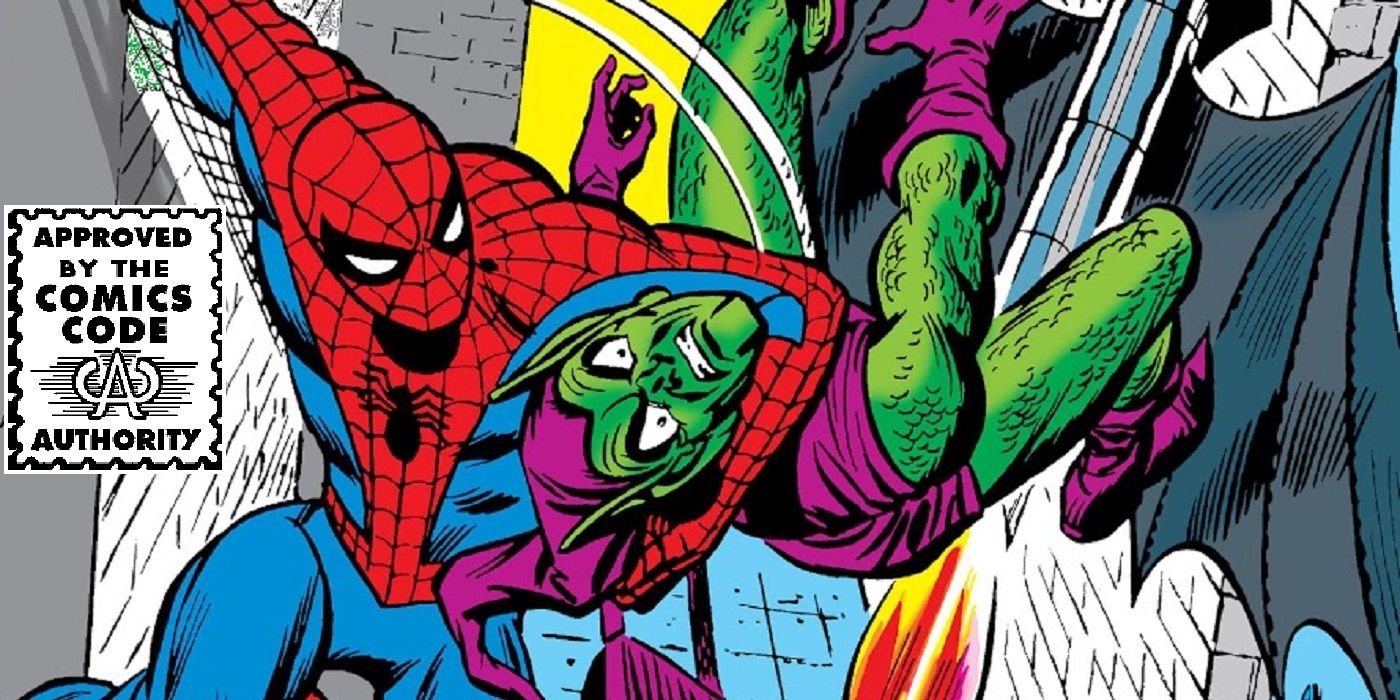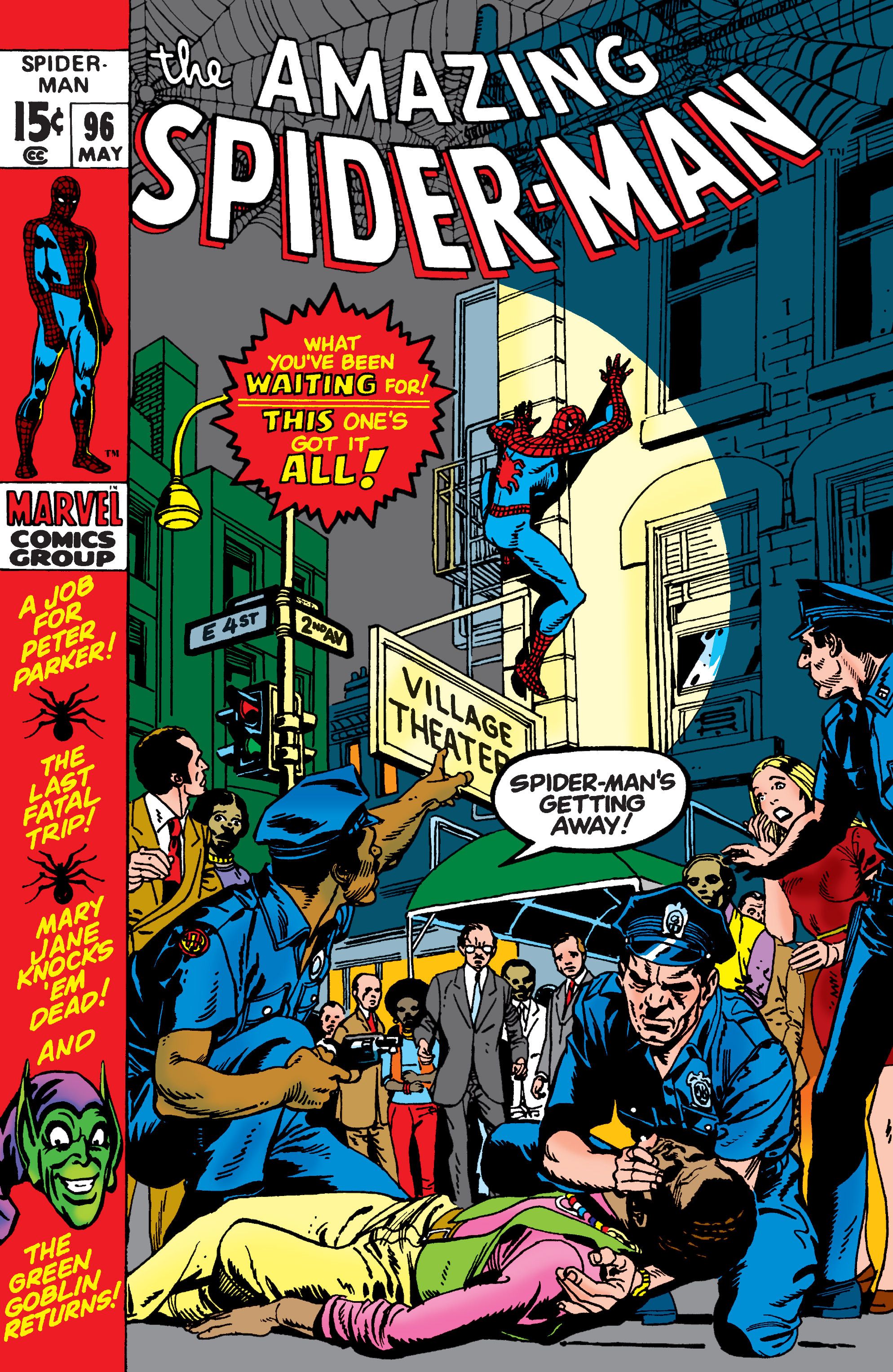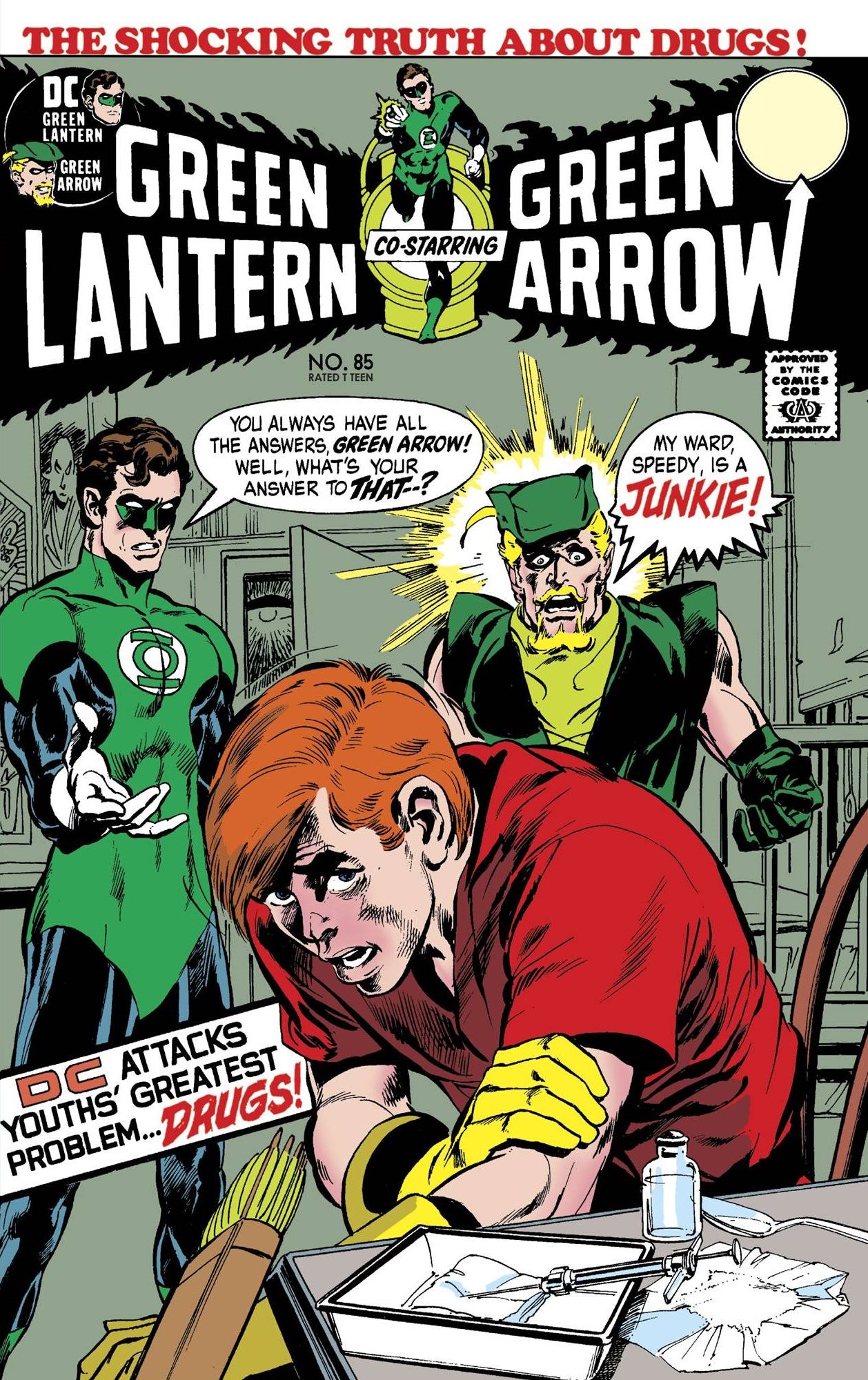In the latest Comic Book Legends Revealed, discover whether Marvel doing a Code-less issue of Spider-Man actually changed the Comics Code!
Welcome to Comic Book Legends Revealed! This is the eight hundred and thirty-fifth installment where we examine three comic book legends and determine whether they are true or false. As usual, there will be three posts, one for each of the three legends. Click here for the first part of this installment's legends.
NOTE: If my Twitter page hits 5,000 followers, I'll do a bonus edition of Comic Book Legends Revealed that week. Great deal, right? So go follow my Twitter page, Brian_Cronin!
COMIC LEGEND:
Marvel releasing a three-part Amazing Spider-Man storyline about drugs without the Comics Code Authority approval changed the Comics Code's stance on allowing the depiction of drugs in comics.
STATUS:
Basically False
Recently, I did a Comic Book Legends Revealed about how Roy Thomas and Gil Kane originally planned on Dracula being the first vampire that Spider-Man would fight after the Comics Code's ban on vampires was over. My friend Chris Nowlin asked me a great question when I put up that post, namely, if the Comics Code hadn't been changed yet when Amazing Spider-Man #98 was released, how was the Code changed in time for Amazing Spider-Man #101 to have a Code-approved vampire in it? Or whatever, something along those lines, about how the timing didn't seem to work out. Amusingly enough, this was precisely a topic that I had said that I would address in a Comic Book Legends Revealed about the Comics Code last July, and so I had been planning on getting into this topic anyways, so here we go!
First, let's recap what the whole situation was about in the first place.
One of the annoying aspects of the Comics Code Authority was that there was not necessarily hard and fast rules all of the time. For instance, as I discussed in a Comic Book Legends Revealed, there wasn't even technically a rule against the depiction of drugs in comics, but rather there was the following rule:
All elements or techniques not specifically mentioned herein, but which are contrary to the spirit and intent of the code, and are considered violations of good taste or decency, shall be prohibited.
The Comics Code then GENERALLY read that rule as saying "you can't depict drugs." Since it wasn't in the actual Code, though, Stan Lee was irritated when the Nixon Administration actually contacted him and asked for him to have a Marvel Comic do an anti-drug message. He brought the idea to the Code and they said no. There was a debate about changing the Code in the future.
Lee didn't want to wait, so he just decided to do the issues anyways and just not have the Comics Code on them. He later talked about it with Roy Thomas in TwoMorrows' Comic Book Artist #2:
Roy: Do you think that there were any bad feelings on the part of the Code over the Spider-Man drug issues?
Stan: That was the only big issue that we had. I could understand them; they were like lawyers, people who take things literally and technically. The Code mentioned that you mustn't mention drugs and, according to their rules, they were right. So I didn't even get mad at them then. I said, "Screw it" and just took the Code seal off for those three issues. Then we went back to the Code again. I never thought about the Code when I was writing a story, because basically I never wanted to do anything that was to my mind too violent or too sexy. I was aware that young people were reading these books, and had there not been a Code, I don't think that I would have done the stories any differently.
In that past legend, I debunked a story that I've seen a few times that the Comics Code administrator of the time, Leonard Darvin, would have probably allowed Lee to do the story at the time, but since he was sick and Archie Comics' more conservative John Goldwater was filling in for him, that the Code said no (again, Lee was naturally irked at the whole "But the government is specifically ASKING ME TO DO THIS" aspect of it all). As I pointed out in that legend, while Darvin was a reasonable guy in a lot of ways, one of the areas where he was quite strict was when it came to the depiction of drugs in comics. He was wholly against it.
And that, then, is the fascinating piece of this saga that people often overlook. Remember that debate about the topic I said that they were going to have? They HAD it and in the end, everyone agreed to NOT relax the Code's restrictions on the depictions of drugs (that is another reason why I don't believe Darvin would have changed anything had he been at the wheel when the initial decision on Amazing Spider-Man #96 was made)! Stan Lee included! He agreed that he would go back to the Code restrictions once the Spider-Man story was over. Thus, in early 1971, the Code was altered to allow for the restrictions on the depiction of vampires and werewolves and some other stuff, but the drug restrictions remained.
Then a funny thing happened - the comic book actually CAME OUT. And when Amazing Spider-Man #96 was released without the Comics Code, it became a news story and in general, the reaction was, "Huh? Why WOULDN'T this be allowed? The government ASKED them to do this anti-drug story and the Comics Code said NO? Huh?" and so, in April of 1971, the Comics Code was changed AGAIN. The New York Times reported at the time:
In a meeting at the Plaza Hotel, the board of the Comics Magazine Association of America voted unanimously to adopt a guideline beginning with the words: “Narcotics addiction shall not be presented except as a vicious habit.”The guideline is not a formal part of the association's code, which governs the contents of the magazines as the strict Hays Code once governed the contents of Hollywood films. But it has the same force according to Leonard Darvin, the code administrator.
Carmine Infantino was quoted as saying, "I feel it's a great step forward for the industry. I think this can prove that the medium that was considered junk for one generation will be the jewel for the next. It can explore the social ills for the younger generation and help them decide how to direct their lives.”
And sure enough, three months later, DC released its iconic anti-drug issue, Green Lantern #85...
So no, Marvel releasing the Amazing Spider-Man issues without the Code approval didn't change the Code, but the REACTION to Marvel doing so ultimately DID change the Code. And that explains all the seeming inconsistencies with the timing of it all.
CHECK OUT A TV LEGENDS REVEALED!
In the latest TV Legends Revealed - See how Colorforms started a little revolution when Strawberry Shortcake wouldn't let companies license it for different kinds of toys, like Colorforms.
PART THREE SOON!
Check back soon for part 3 of this installment's legends!
Feel free to send suggestions for future comic legends to me at either cronb01@aol.com or brianc@cbr.com



